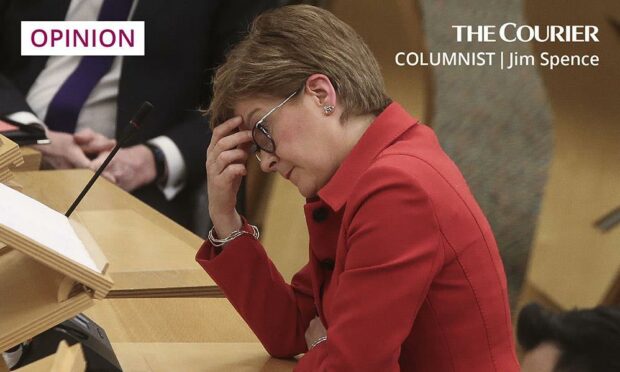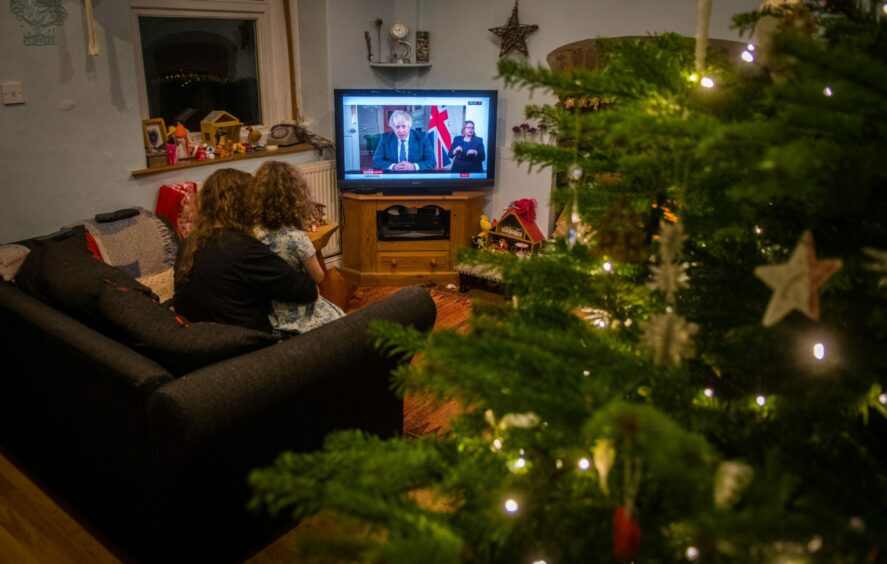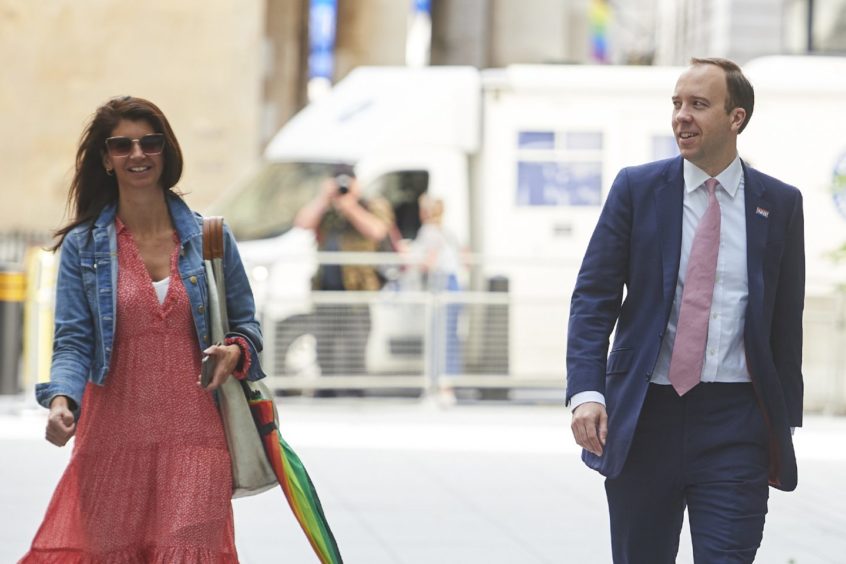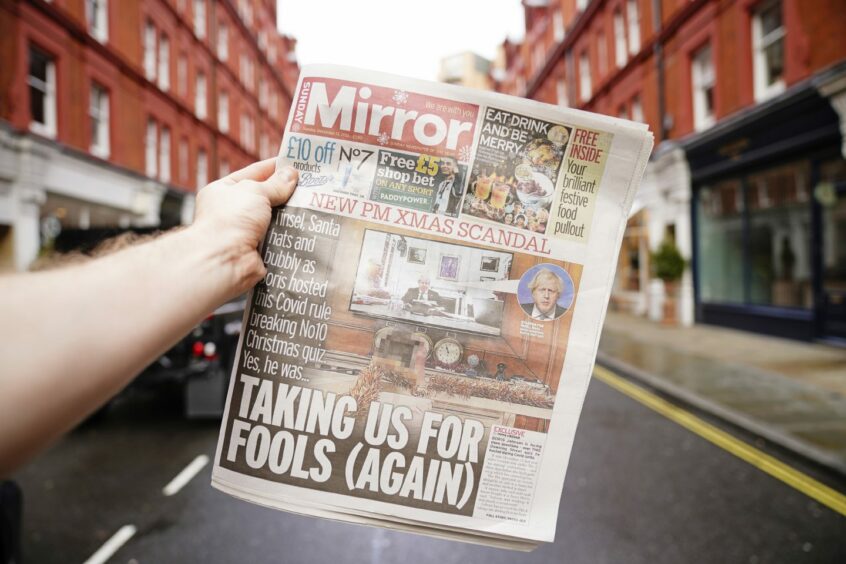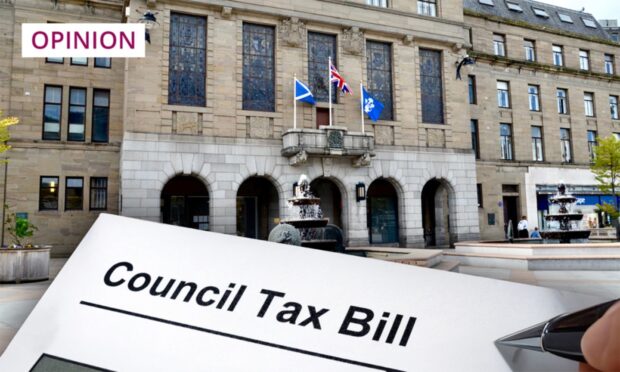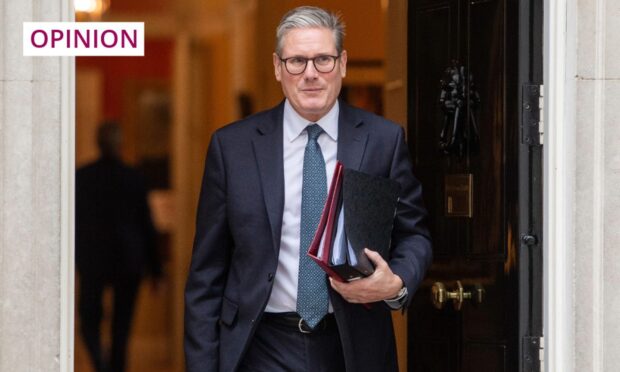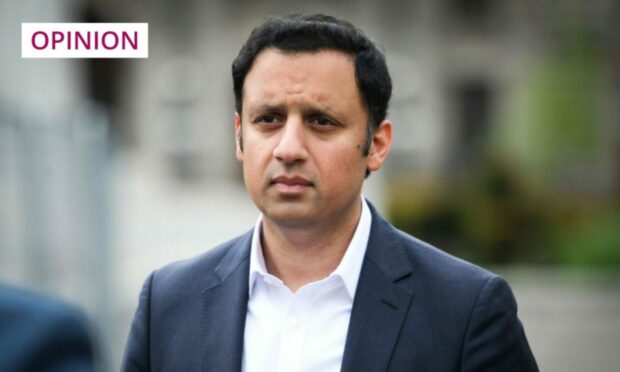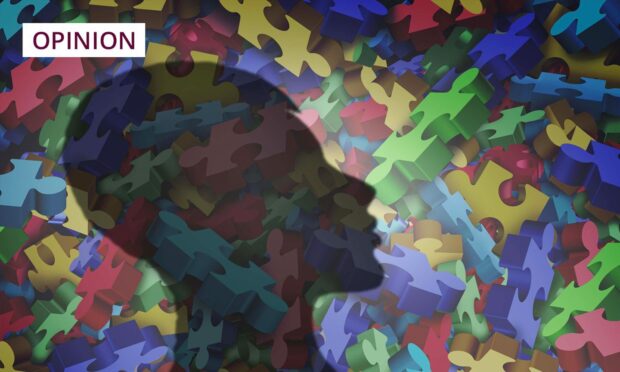Sympathy for politicians is in short supply.
So let me be the one to offer our elected representatives a modicum as they wrestle with Covid, immigration, independence, gender wars and a hundred other intractable problems.
I understand why some people might think the life of an MP, MSP or local councillor is an easy gig.
The truth, I suspect, is somewhat different.
Politics is open to all of us to get involved.
But most of us would rather settle down to watch Strictly or the football than haul our backsides out to draughty halls or campaign on doorsteps in all weathers for our political beliefs.
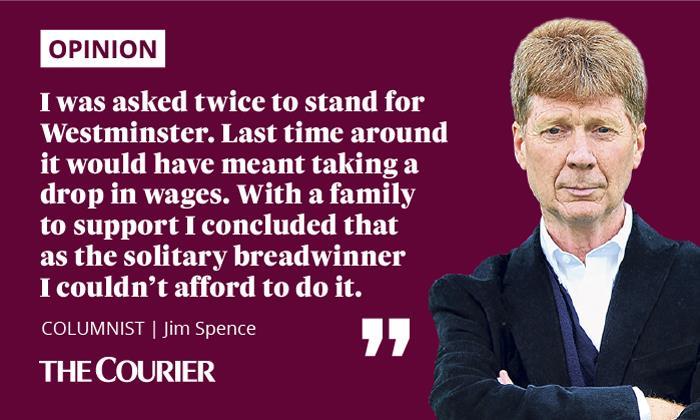
Instead we get the politicians we deserve.
And it’s an unforgiving business.
For a start, there are as many opinions as there are voters.
As such all parties have to compromise and thus quickly find their purity levels distilled.
The art of running society and keeping everyone happy is a logistically impossible task.
Take those who want independence and who boast that Scots would always get the government we vote for as an independent nation.
For that to be true everyone would have to vote for the same party and even in a one party state that’s a tall order.
Sleaze goes on outside parliaments too
The current sleaze allegations at Westminster are nothing new either.
Politicians aren’t made in a laboratory.
They’re someone’s husband, wife, partner, son, daughter, brother, sister, uncle, auntie.
They’re subject to the same temptations as the rest of us.
Financial gain is only one of those temptations.
Some find it impossible to keep their snouts out of the trough or themselves out of someone else’s bed.
No party holds the copyright on financial impropriety.
It’s simply that the Tories, with closer links by and large to the rich and powerful, are easier meat through their old school connections and contacts.
Venality and corruption are as old as the hills.
But what does seems to have changed is that few politicians contemplate resignation when they are found out unless they are forced into it.
The fine art of balancing competing interests
Politicians also have to navigate waters as perilous as the Atlantic in winter
Each party has to satisfy a multitude of competing and conflicting interests. That’s within its own ranks, never mind those outside.
The independence movement for instance must balance EU fanatics against those who want European Free Trade Association membership, or those who see real independence as the ability to deal and trade with whomsoever they wish, unencumbered by rule making bodies like the EU.
JIM SPENCE: Why the party's over for Scottish independence supporters… https://t.co/VhHS78XhZt via @thecourieruk
— David Clegg (@davieclegg) November 30, 2021
I stood for the SNP in council elections just after I’d left the Labour Party, when Dundee was a Labour fiefdom.
Outside the polling station two women approached from opposite directions.
They were neighbours, but only in the physical sense of the word.
They certainly didn’t adhere to the biblical command to love thy neighbour as thyself.
And they were in serious dispute over the young son of one, who was creating havoc by constantly kicking his ball into the other’s garden.
Both asked me what I would do to sort the problem out if I was elected, looking for me to take a side in the matter.
The incident encapsulated the everyday issues which seem on one hand petty, but really grate with people, and which politicians are actually fairly helpless to fix.
I reduced the Labour majority from over 800 to around a tenth of that but fortunately their candidate won the election.
No doubt they attempted to emulate the late Kofi Annan as peacemaker between warring parties.
No doubt they struggled to find that common ground.
Low rewards, high risk and all the grief you can handle – who’d be a politician?
Most elected representatives are in politics for the right reasons; they want to change things for the better.
It’s understandable though, given the myriad demands of the electorate, that some elected members eventually surround themselves in a cocoon of the like minded and stop engaging with those who can see only their own points of view.
I was asked twice to stand for Westminster.
Last time around it would have meant taking a drop in wages.
With a family to support I concluded that as the solitary breadwinner I couldn’t afford to do it.
A former lecturing colleague of mine had one term in London and, despite being a hard working MP, was dumped come the following election.
In such circumstances rebuilding a career and income isn’t easy.
MPs give up second jobs worth £250k a year in wake of Westminster sleaze row https://t.co/lvuGd0hTRN
— Sky News (@SkyNews) December 2, 2021
Increasingly I’m unsure as to why anyone wants the grief of representing a public which has more opinions than Imelda Marcos had shoes.
Given that all political careers end in failure it’s amazing that there’s a steady supply of folk prepared to put themselves through the mill trying to represent others in what is always an uphill struggle.
If you’re on the left you’re not left enough for some.
If you’re on the right you’re too right for some, not right enough for others.
And if you’re somewhere in the middle you’re an unprincipled fence sitter.
I’m as critical of our elected representatives as anyone else, but in truth I’m increasingly surprised that anyone can be bothered doing their job.
Jim Spence is a freelance broadcaster and journalist and a regular columnist and podcaster for The Courier.
